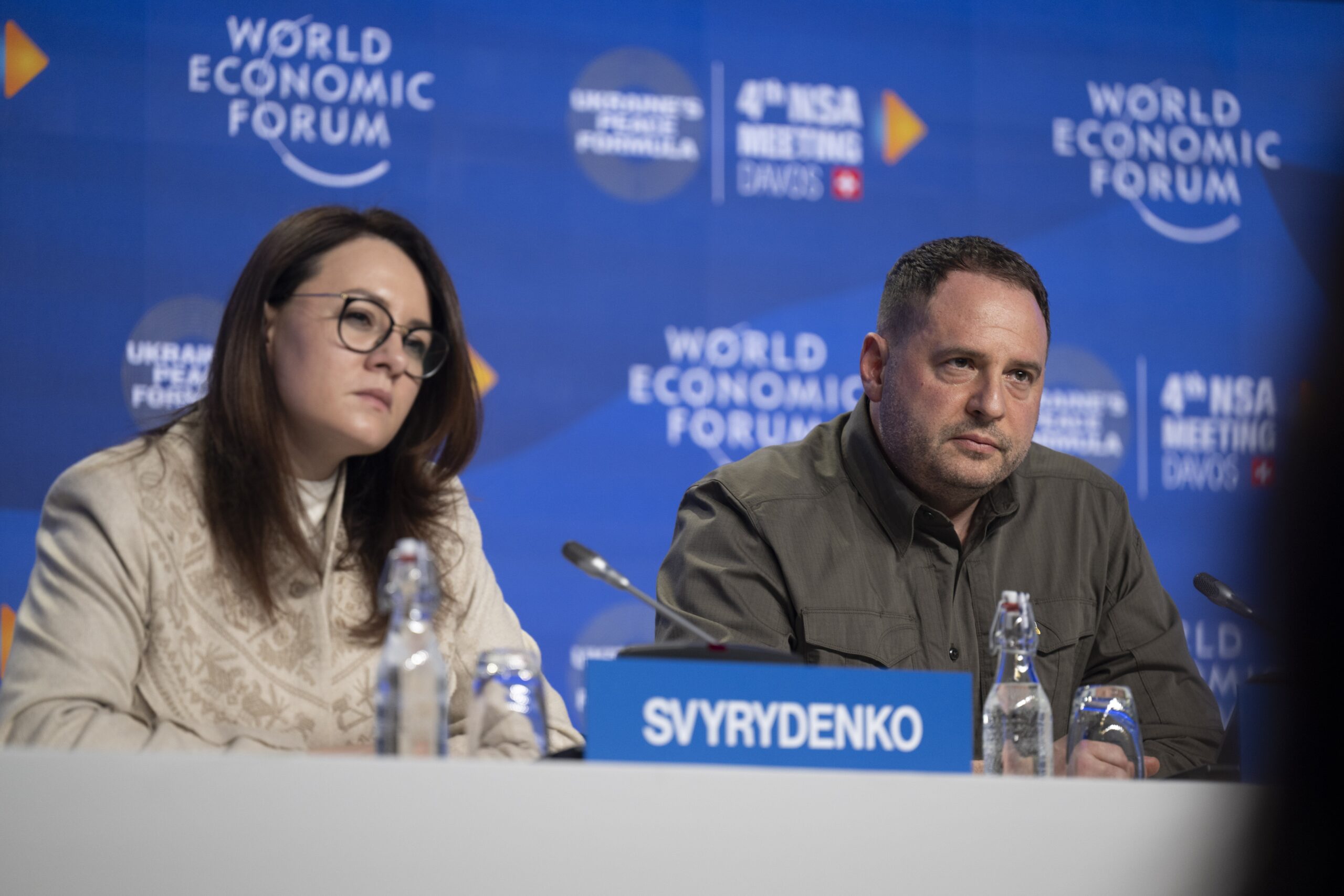Ukrainian president Volodymyr Zelensky has asked first deputy prime minister Yulia Svyrydenko to lead a new government, setting the stage for a political reshuffle as Ukraine’s war with Russia raged on.
Ms Svyrydenko, 39, is an economist and has served as first deputy prime minister since 2021. She played a key role in recent negotiations for a minerals deal with the United States.
This comes as Donald Trump once again expressed his disappointment with Russian president Vladimir Putin and announced 100 per cent sanctions on Russia as he pledged more weapons for Ukraine, including 17 Patriot missiles which Kyiv has urgently sought.
“We’re going to be doing secondary tariffs,” the US president said, announcing sanctions on countries who trade with Moscow. “If we don’t have a deal in 50 days, it’s very simple, and they’ll be at 100 per cent,” the US president said, adding that he was disappointed in Mr Putin.
Mr Trump announced that billions of dollars of US weapons would go to Ukraine, and said: “We’re going to make top-of-the-line weapons, and they’ll be sent to Nato.”
Who is Yulia Svyrydenko, named by Zelensky as next Ukraine PM?
Volodymyr Zelensky has offered Ukraine’s first deputy prime minister Yulia Svyrydenko a chance to serve as the country’s prime minister in a cabinet rejig.
The 39-year-old leader has served Ukraine in one of its first successful negotiations with the US on minerals deal. She is an economist and has served as first deputy prime minister since 2021.
When she signed the minerals deal with the Trump administration, Ms Svyrydenko repaired the fractured ties between Mr Zelensky and the US president after their public Oval Office spat.
She flew to Washington and said that the new fund would “attract global investment into our country”.
“Another milestone on the path to launching the United States-Ukraine Reconstruction Investment Fund: Ukraine has completed all necessary procedures on schedule,” Ms Svyrydenko wrote in English on social media.
Shortly after the deal, ties between Kyiv and Washington normalised.
Writing on X, Ms Svyrydenko yesterday said she would pursue deregulation, cut back bureaucracy, protect business and reduce non-critical expenditure to achieve the “full concentration of state resources” for defence and post-war recovery.
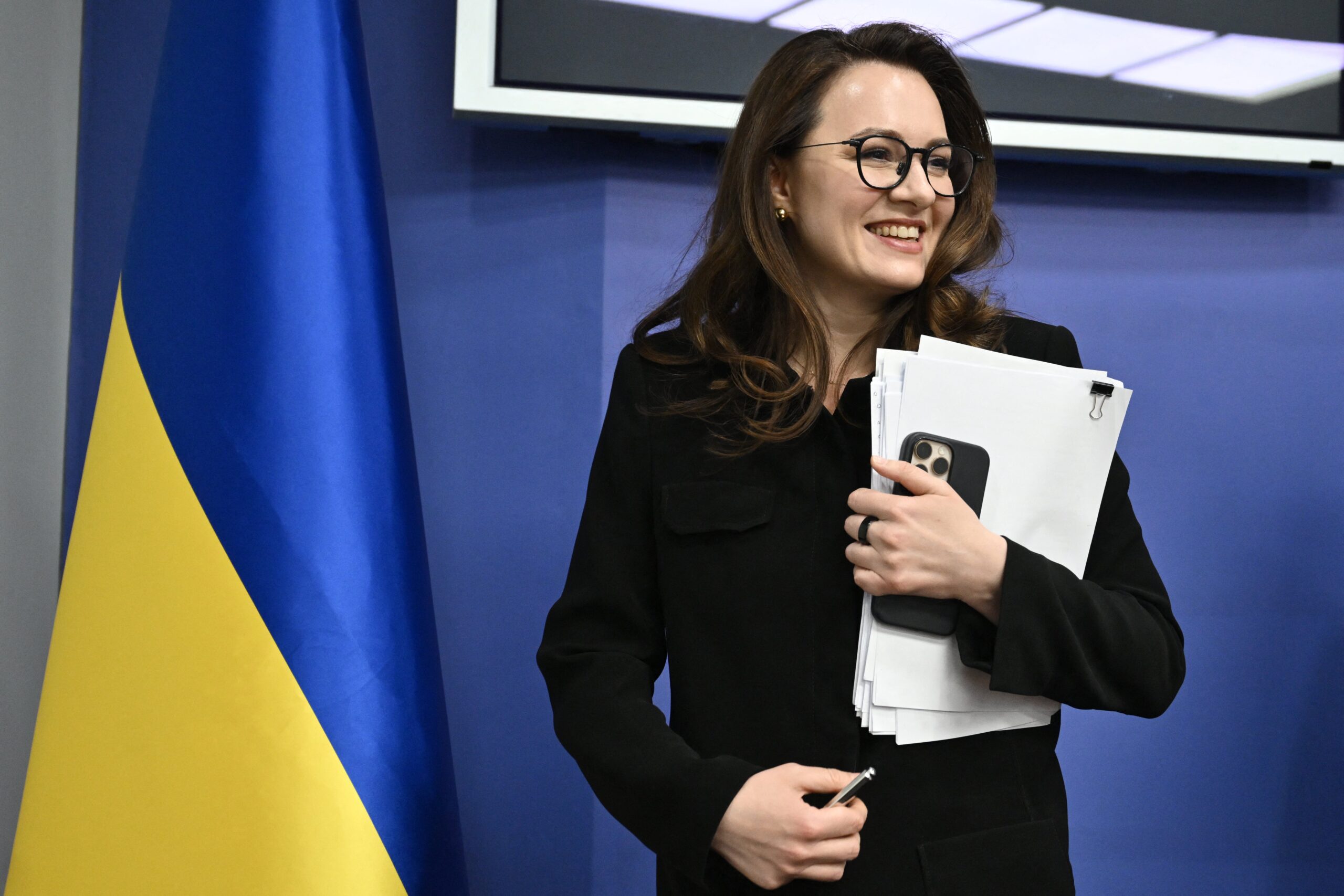
Trump ‘disappointed but not done’ with Putin after announcing tariffs
Donald Trump said he was disappointed but not done with Russian president Vladimir Putin as he hinted at not trusting the Kremlin leader.
In a BBC interview published today, hours after Trump announced new weapons for Ukraine and threatened Russia with sanctions, the US president said: “I’m disappointed in him (Putin), but I’m not done with him. But I’m disappointed in him.”
“We’ll have a great conversation. I’ll say: ‘That’s good, I’ll think we’re close to getting it done,’ and then he’ll knock down a building in Kyiv,” the president added.
On being asked if he trusted the Kremlin leader, Mr Trump said: “I trust almost no-one”.
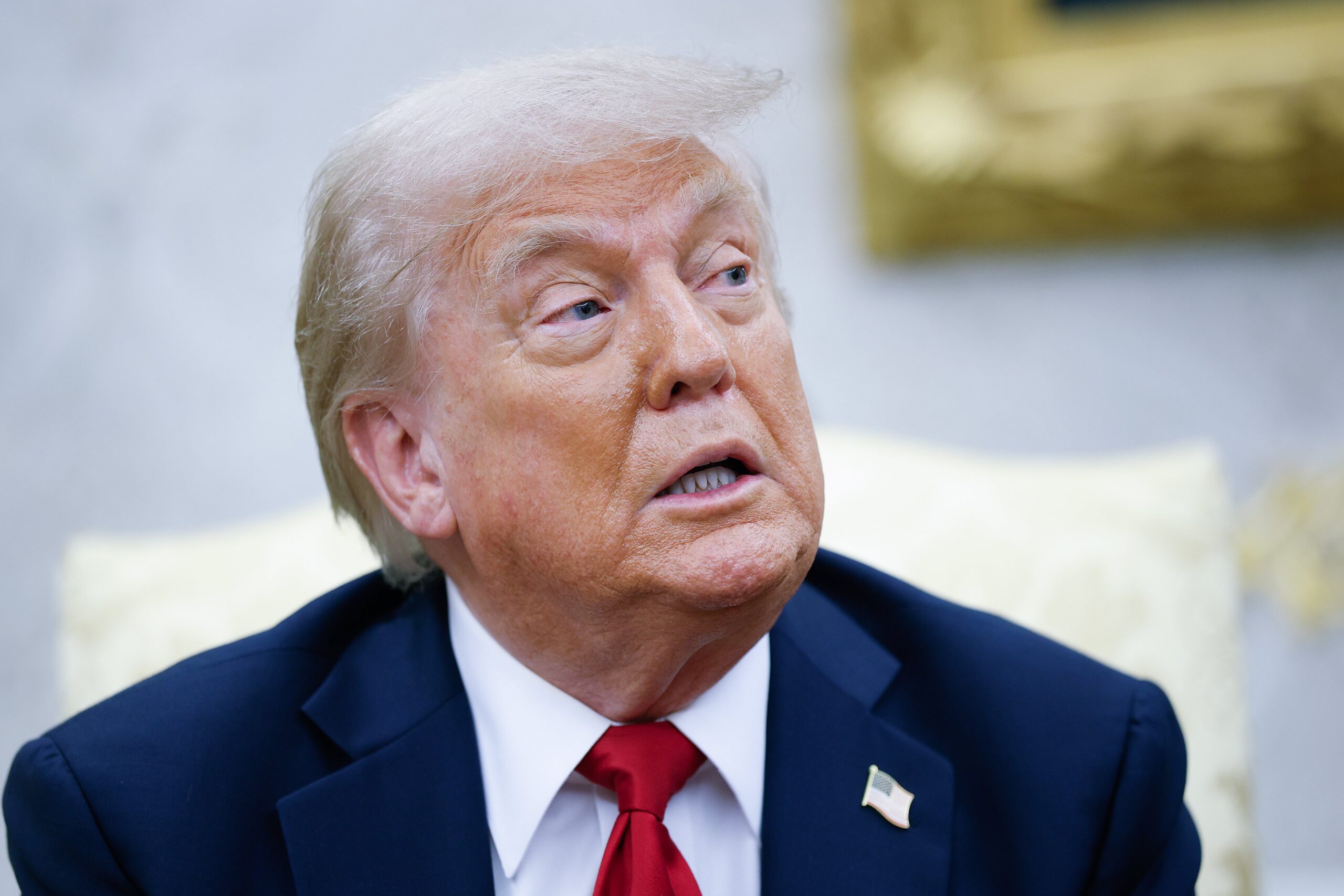
Zelensky thanks Trump for support as new sanctions on Putin likely
Ukrainian president Volodymyr Zelensky said on Monday he had spoken to US president Donald Trump after his announcement of new weapons for Ukraine and thanked him for his support.
“It was a very good conversation. I thanked him for his readiness to support Ukraine and to continue working together to stop the killings and establish a lasting and just peace,” Mr Zelensky wrote.
His remarks come as Mr Trump announced new weapons for Ukraine yesterday, and threatened sanctions on buyers of Russian exports unless Russia agrees a peace deal in the next 50 days.
Mr Trump’s threat to impose so-called secondary sanctions on Russia, if carried out, would be a major shift in Western sanctions policy. Lawmakers from both US political parties are pushing for a bill that would authorise such measures, targeting other countries that buy Russian oil.
Zelensky and Kellogg discuss joint arms production and defences
Ukrainian president Volodymyr Zelensky says he had “a productive conversation” with US president Donald Trump’s special envoy to Ukraine and Russia about strengthening Ukrainian air defences, joint arms production and purchasing US weapons in conjunction with European countries.
The two also talked about the possibility of tighter international sanctions on the Kremlin.
Mr Zelensky, who met retired Lt Gen Keith Kellogg in Kyiv, wrote on social media: “We hope for the leadership of the United States, because it is clear that Moscow will not stop unless its … ambitions are stopped by force.”
Several people injured in Russia as 55 Ukrainian drones downed overnight
Several people were injured and houses and non-residential buildings were damaged as a result of Ukraine’s overnight drone attack on Russia, regional officials said.
The drones were downed in Russia’s southwestern regions of Lipetsk and Voronezh, regional governors said this morning.
The Russian defence ministry said on Telegram that its units destroyed 55 Ukrainian drones overnight over five Russian regions and the Black Sea, including three over the Lipetsk region.
The full extent of damage from the attacks was not immediately known. There was no immediate comment from Ukraine about the attack.
Russia’s air defence units destroyed 12 drones over the Voronezh region that borders Ukraine, governor Alexander Gusev said on Telegram.
“Unfortunately, there were injuries,” Mr Gusev said. “In central Voronezh, several people sustained minor injuries due to debris from a downed UAV (unmanned aerial vehicles).”
Several apartments in multi-storey buildings in the city of Voronezh that is the administrative centre of the broader Voronezh region were damaged, as well as houses in the suburbs, Mr Gusev said.
Additionally, several commercial facilities throughout the region were damaged by falling drone debris, he said, without providing further details.
In the city of Yelets in the Lipetsk region a drone crashed in an industrial zone, regional governor Igor Artamonov said on Telegram.
“One person was injured and is receiving all necessary medical assistance,” Mr Artamonov said.
Trump says his sanctions threat is led by frustration with Putin
Donald Trump said his shift in imposing punitive actions on Russia was motivated by frustration with Vladimir Putin.
“We actually had probably four times a deal. And then the deal wouldn’t happen because bombs would be thrown out that night and you’d say we’re not making any deals,” Mr Trump said.
Last week he said, “We get a lot of bulls*** thrown at us by Putin.”
Since returning to the White House promising a quick end to the war, Mr Trump has sought rapprochement with Moscow, speaking several times with Mr Putin.
His administration has pulled back from pro-Ukrainian policies such as backing Kyiv’s membership in Nato and demanding Russia withdraw from all Ukrainian territory.
But the Russian leader has yet to accept a proposal from Mr Trump for an unconditional ceasefire, which was quickly endorsed by Kyiv. Recent days have seen Russia use hundreds of drones to attack Ukrainian cities.
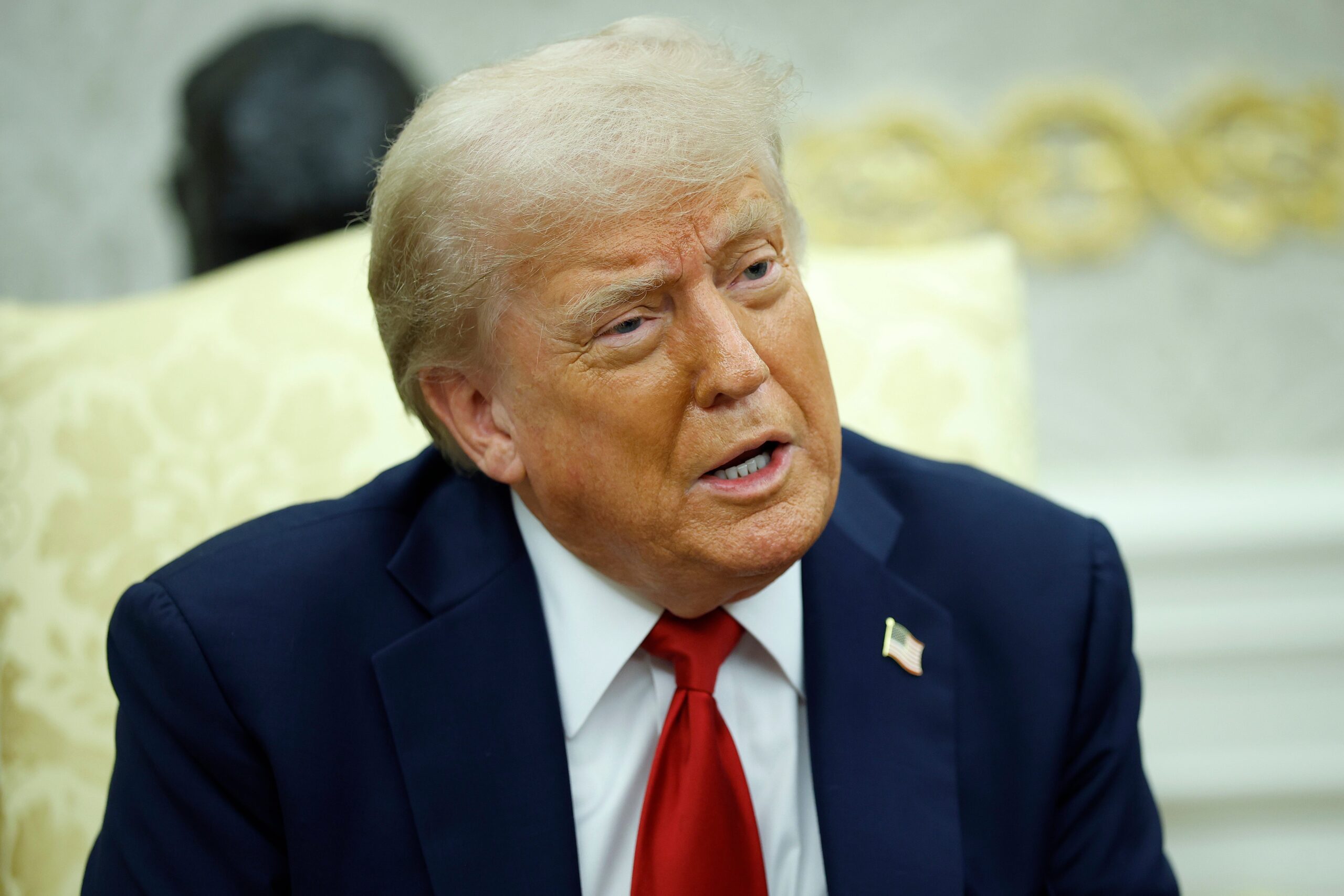
Trump is looking at making money out of Nato – not saving Ukraine
With the secretary general of Nato sitting next to him in the Oval Office, the US president warned that Russia would face “100 per cent” tariffs if it did not agree to a ceasefire with Kyiv inside 50 days.
He went on to criticise Putin several times for his warm approach and manner on the telephone which he then followed up by renewed missile attacks on Ukraine.
“I wouldn’t call him an assassin, but I would call him a very tough guy,” he said of the Russian president.
Trump pledges more Patriots for Ukraine in coming days
US president Donald Trump has said billions of dollars of US weapons would go to Ukraine, including more than a dozen Patriot air defence missiles.
“We’re going to make top-of-the-line weapons, and they’ll be sent to Nato,” Mr Trump said, adding that Washington’s Nato allies would pay for them.
The weapons would include Patriot air defence missiles Ukraine has urgently sought, he said.
“It’s a full complement with the batteries,” Mr Trump said. “We’re going to have some come very soon, within days.”
“We have one country that has 17 Patriots getting ready to be shipped… we’re going to work a deal where the 17 will go or a big portion of the 17 will go to the war site,” he said.
Nato secretary general Mark Rutte, who was sitting alongside Mr Trump in the Oval Office, said Germany, Finland, Denmark, Sweden, Norway, the United Kingdom, the Netherlands and Canada all wanted to be a part of rearming Ukraine.
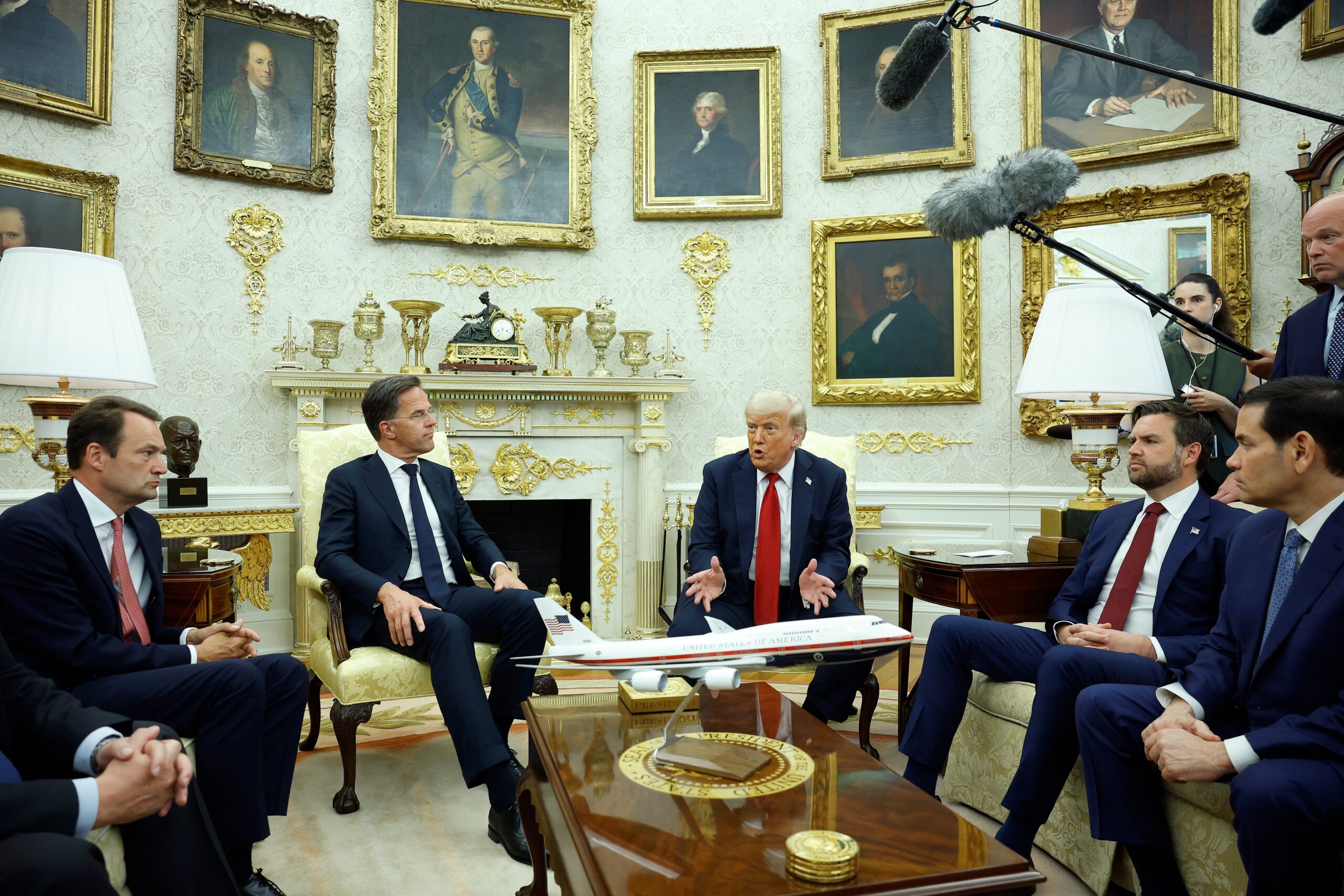
‘Trump did not go as far as Russian markets had feared’
Artyom Nikolayev, an analyst from financial information firm Invest Era, said the US president Donald Trump did not go as far as Russian markets had feared.
“Trump performed below market expectations. He gave 50 days during which the Russian leadership can come up with something and extend the negotiation track. Moreover, Trump likes to postpone and extend such deadlines,” he said.
Zelensky nominates new prime minister to lead Ukraine government
Ukrainian president Volodymyr Zelensky has asked first deputy prime minister Yulia Svyrydenko on Monday to lead a new government, setting the stage for a political reshuffle as Ukraine’s war with Russia raged on.
Mr Zelensky also proposed that Ukraine’s current prime minister, Denys Shmyhal, take over as defence minister, describing him as holding the right qualifications for a very important job.
“We… discussed concrete measures to boost Ukraine’s economic potential, expand support programs for Ukrainians, and scale up our domestic weapons production,” Mr Zelensky wrote on X.
“In pursuit of this goal, we are initiating a transformation of the executive branch in Ukraine,” he said, adding that he had proposed that Ms Svyrydenko lead the government and “significantly renew its work”.
Ms Svyrydenko, 39, is an economist and has served as first deputy prime minister since 2021. She played a key role in recent negotiations for a minerals deal with the United States.
